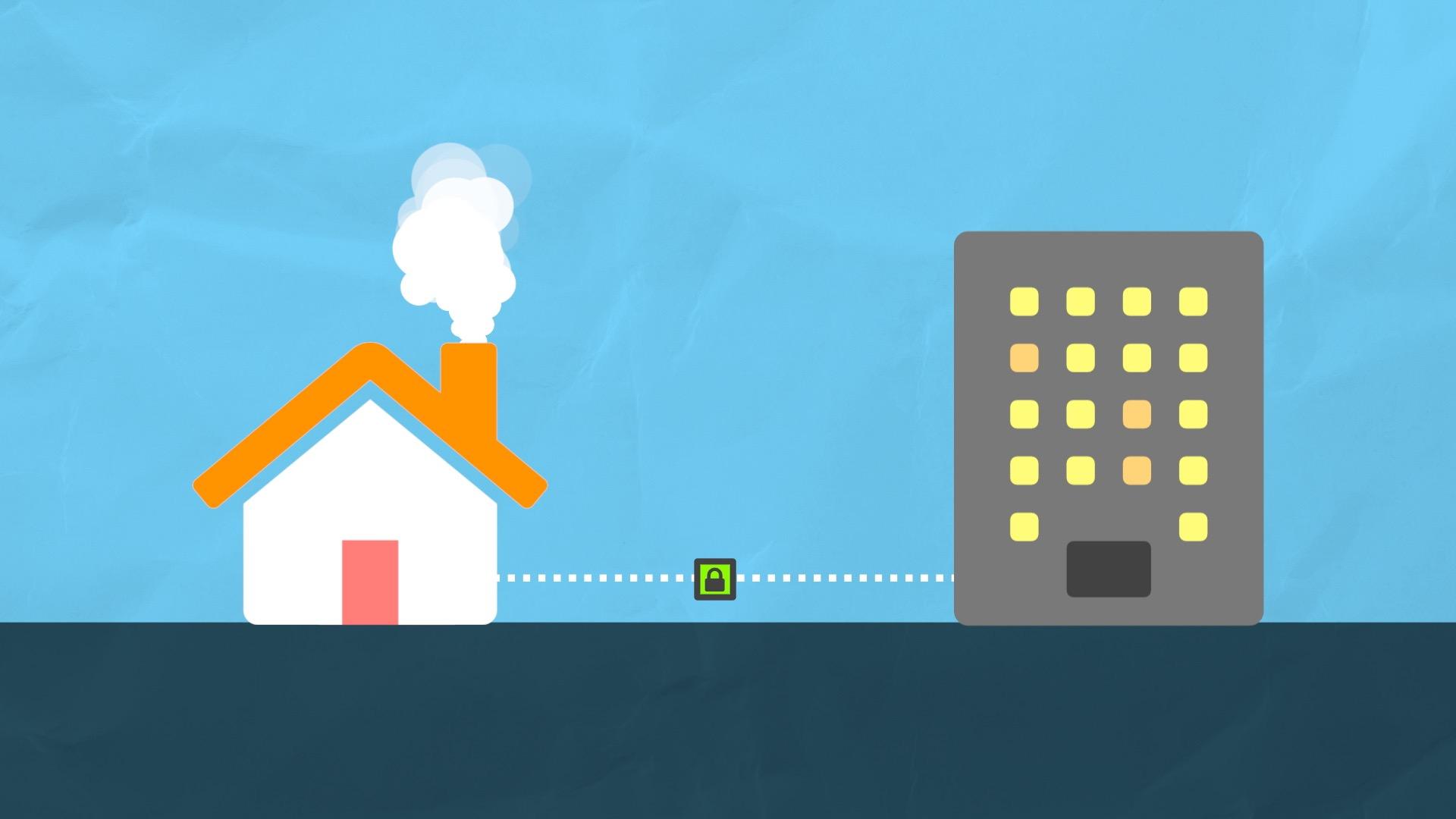Uganda election: Facebook and Whatsapp blocked
- Published
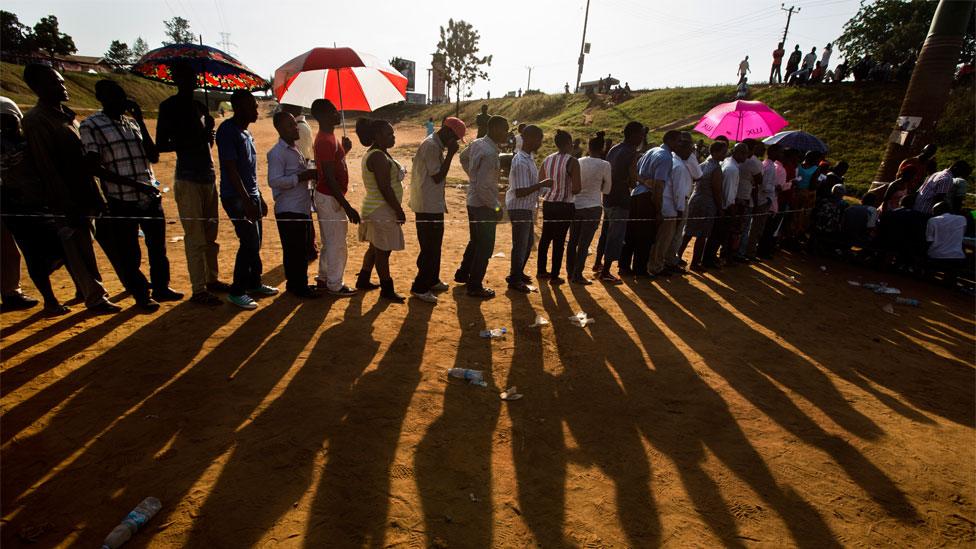
An observer body said delays in voting were 'inexcusable'
Social media has been blocked in Uganda on the day of presidential elections to stop people "telling lies", President Yoweri Museveni has said.
Mr Museveni, 71, is seeking to extend his 30-year rule, in a race widely seen as the tightest in the East African state's history.
His main rival Kizza Besigye was briefly detained by police.
A foreign observer group condemned the blockage of social media and lengthy delays in opening voting booths.
Interviewed on TV about social media, Mr Museveni said: "Some people misuse those pathways. You know how they misuse them - telling lies.
"If you want a right then use it properly."
Many people found a way around the controversial restrictions, including opposition candidate Amama Mbabazi who tweeted advice on how to do it:

A VPN - a Virtual Private Network - gets round government censorship by redirecting your internet activity to a computer in a different country.
Facebook, Twitter, Whatsapp and mobile money services were blocked.
Despite this, #UgandaDecides, external was trending on Twitter.
Commonwealth election observer mission head Olusegun Obasanjo said: "It is ill advised if anyone has blocked social media."
Condemning the failure of voting stations to open on time, he said: "Delays of three, four, five and even six hours, especially in Kampala, are absolutely inexcusable and will not inspire trust and confidence in the system and the process".
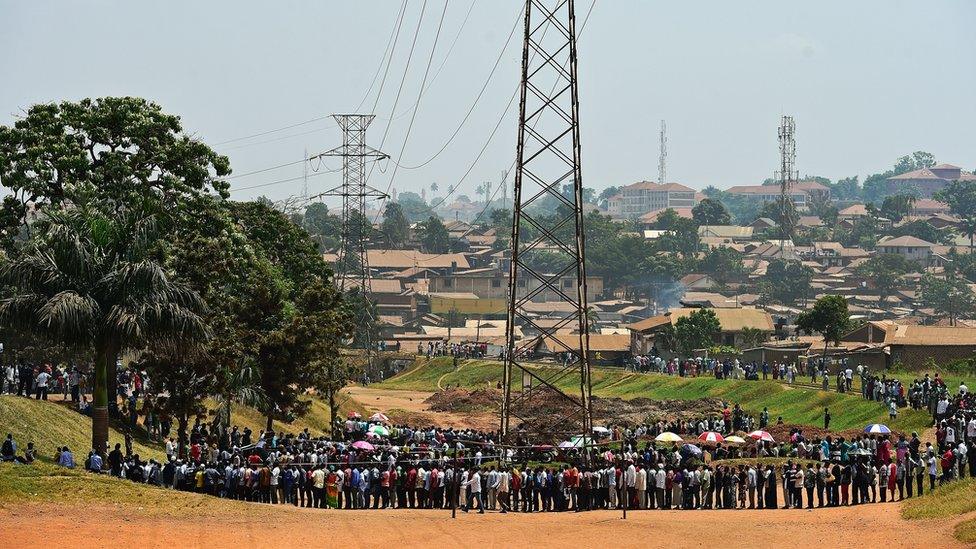
Long queues formed outside polling stations
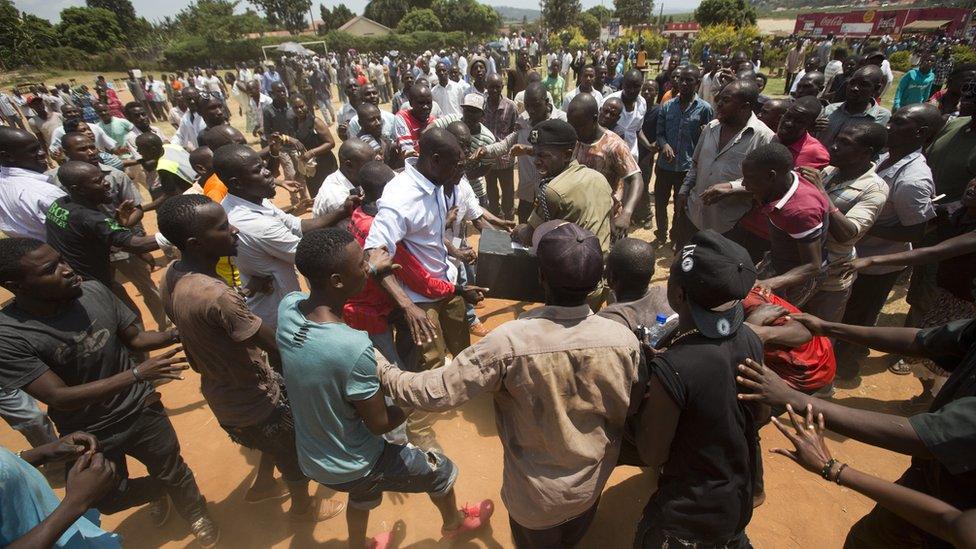
After long delays voters surrounded a policeman struggling to keep hold of election materials at a station on the outskirts of Kampala
The electoral commission said difficulties in transporting electoral materials caused the delays, and voting at some polling stations would continue on Friday.
The BBC's Catherine Byaruhanga in the capital, Kampala, reports that crowds were angry after waiting several hours to vote and police fired tear gas to disperse them.
Voting was cancelled at at least two polling stations in the city after clashes with police and accusations of fake ballots being distributed.
Catherine Byaruhanga spoke to voters at one polling station to assess the mood
Some voters in Kampala, traditionally an opposition stronghold, accused the authorities of deliberately stalling the vote, AFP news agency reports.
"People are quite angry and everybody is believing that there is something wrong behind this because of the way they are delaying things," Moses Omony, a motorbike taxi driver, is quoted as saying.
Mr Besigye was arrested for demanding access to a house in Kampala where he believed vote rigging was taking place following the closure of polling stations, said Ssemujju Ibrahim Nganda, spokesman for his FDC party.
He was taken to a police station before being released.
Mr Besigye is among seven opposition candidates hoping to end Mr Museveni's 30-year rule.
A candidate needs to secure more than 50% of the vote to avoid a run-off with the second-ranked contender.
Ugandans also voted in parliamentary elections.
Counting is under way and official results are expected by Saturday.

Major presidential contenders:
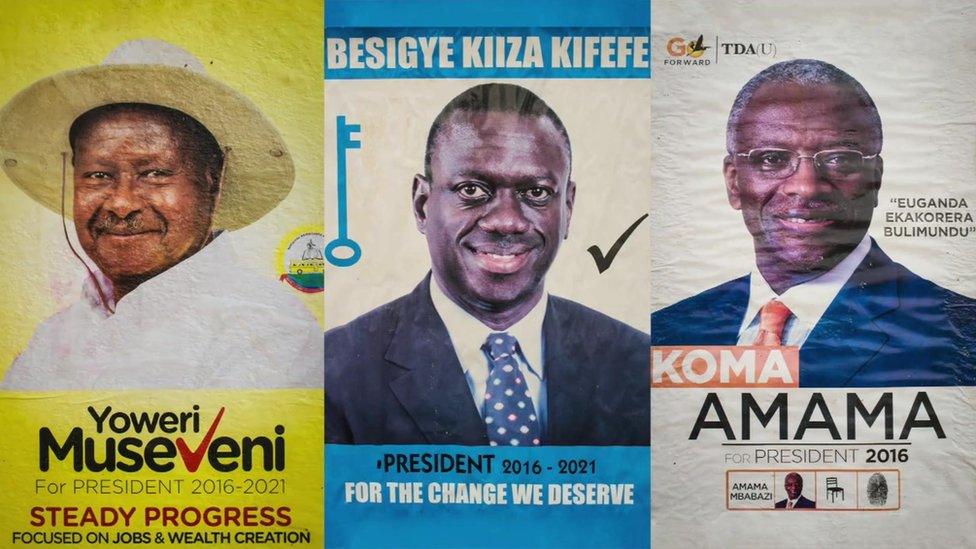
Kizza Besigye, 59, veteran opposition leader and once personal doctor to incumbent President Museveni. He has lost the last three elections
Amama Mbabazi, 67, former ally of President Museveni and once prime minister and also served as defence, security and justice ministers
Yoweri Museveni, 71, in power since winning a five-year guerrilla war in 1986 and he is one of Africa's longest-serving leaders. His final term was meant to end in 2006, but in 2005 he won a campaign to lift the constitutional term limits.

- Published17 February 2016
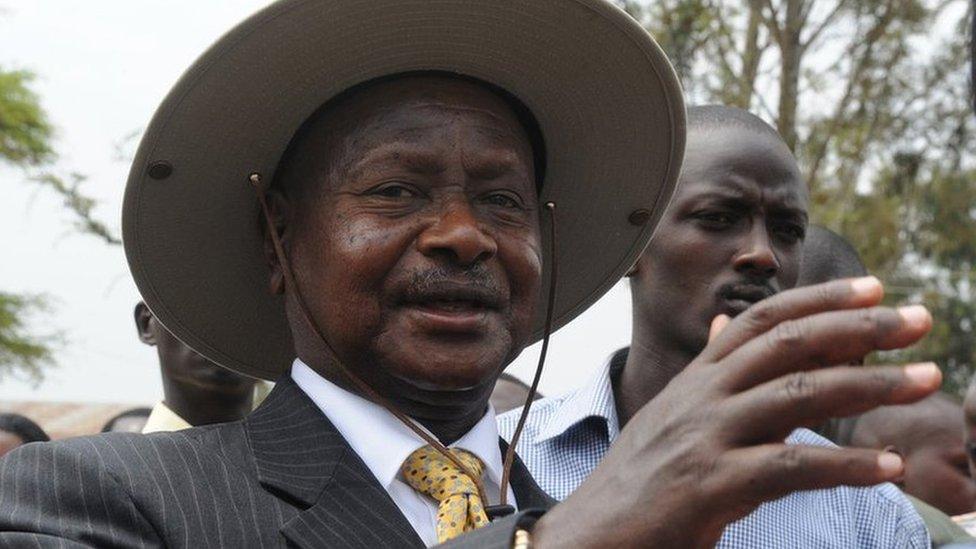
- Published17 February 2016
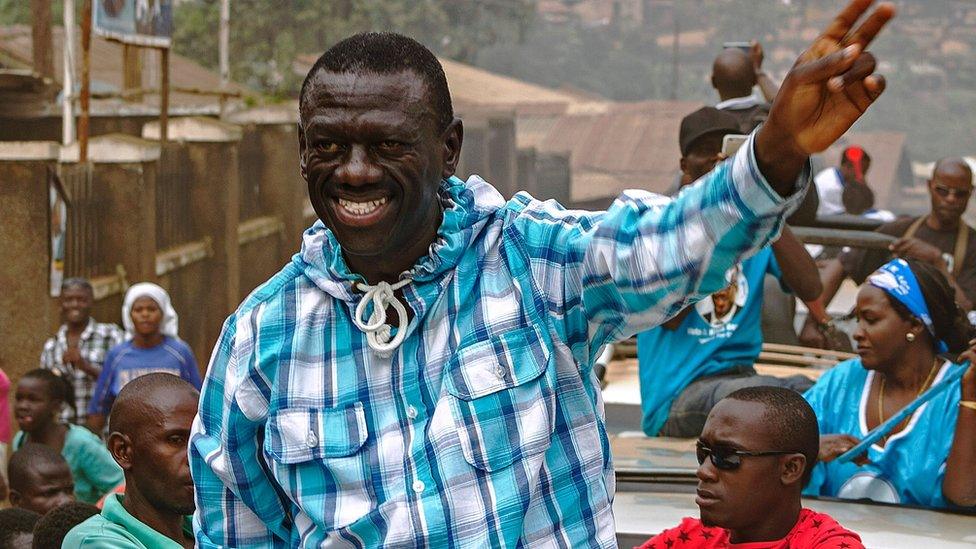
- Published17 February 2016
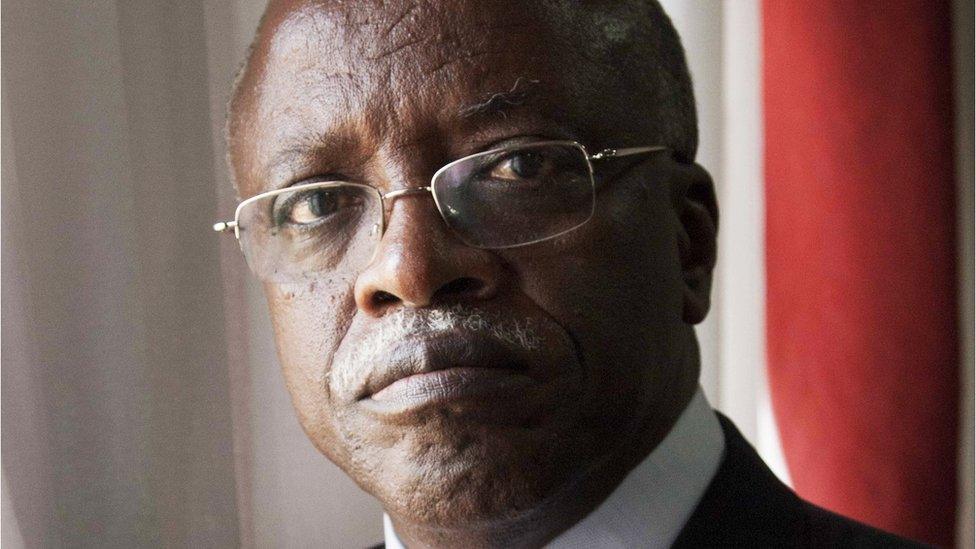
- Published10 February 2016
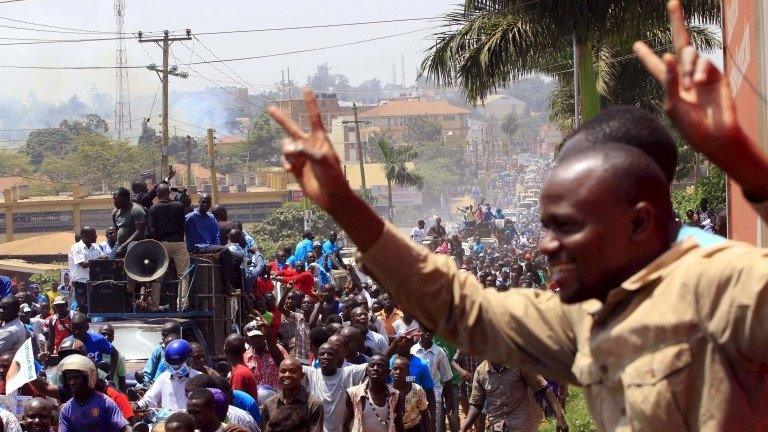
- Published26 April 2023
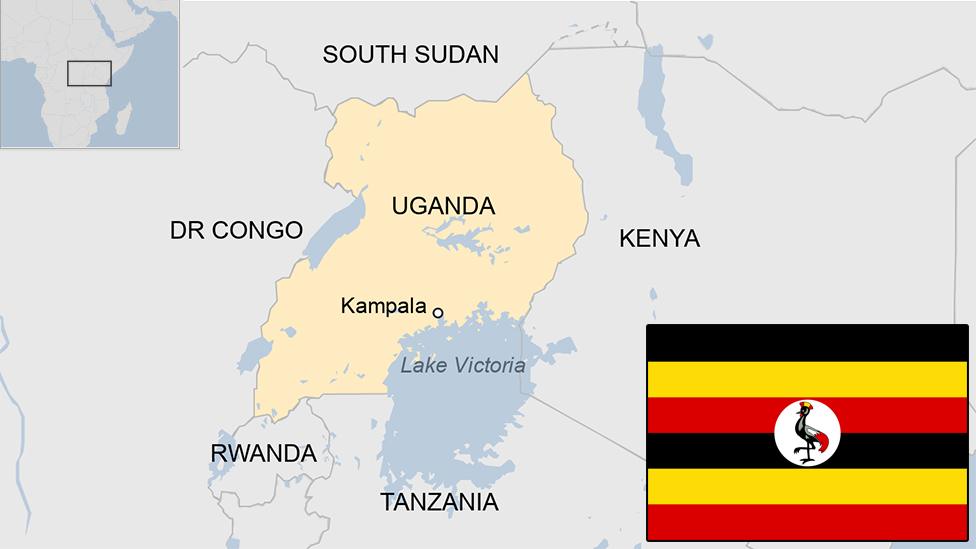
- Published18 January 2016
